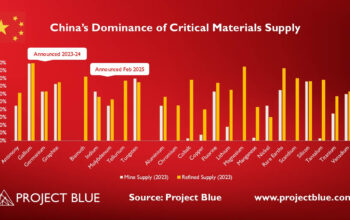Tailings review from ICMM recommends increased emphasis on governance
The International Council on Mining and Metals (ICMM) updated its principles on tailings management in December, and committed its 23 member companies, among them Rio Tinto, Barrick Gold and Goldcorp, to implement them in full and report on their progress each year.
The review’s key recommendation was to increase the emphasis on governance to ensure that existing technical and management guidelines are effectively applied. Rigorous independent reviews, in particular, should be submitted directly to the company’s CEO and board of directors with minimum alteration. Timely inspections and audits need to be carried out by qualified professionals and the recommendations and corrective actions carefully managed to ensure they are completed.
One month after the November 2015 tailings dam failure at Vale and BHP Billiton’s Samarco mine in Brazil, which killed 19 people, destroyed the village of Bento Rodrigues and polluted the basin of the Rio Doce, ICMM announced it would conduct a global review of tailings storage and management standards.
Golder Associates was appointed to conduct the review, supported by a panel of technical experts from ICMM member companies and associations, including several Canadian geoscientists and engineers.
Terry Eldridge, the report’s senior project reviewer and a principal at Golder, said the findings of the review “reinforced the need for direct communication between the engineers who design and construct tailing facilities, and the executives who make decisions at the board level.”
The review examined member companies’ surface tailings management documents and national guidelines – including standards, guidelines and risk controls, and governance and emergency response plans related to sudden catastrophic failure. Recognized Canadian tailings specialists, drawing on lessons learned from the Mount Polley dam failure in 2014, shared advances made by the Association of Professional Engineers and Geoscientists of British Columbia and the provincial government. Tailings management guidelines and standards in the province were reviewed and overhauled after the failure.
Teck Resources, an ICMM member since 2006, participated in the development of ICMM’s tailings governance framework by providing internal procedures and guidelines, and technical expertise, said Teck spokesman Chris Stannell.
The review summarized the known causes of tailings failures in the past 20 years as lack of control of the water balance, leading to overtopping; lack of construction quality control; a general lack of understanding of the geotechnical features that control safe operations; and lack of operator responsibility and ownership.





